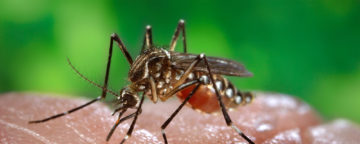Misleading user-generated YouTube videos that promote e-cigarettes and hookahs can make young adults feel more positively about these products, according to new research by the Annenberg Public Policy Center.


Misleading user-generated YouTube videos that promote e-cigarettes and hookahs can make young adults feel more positively about these products, according to new research by the Annenberg Public Policy Center.

Threatened by the mosquito-borne Zika virus in 2016, Florida residents were much more likely than non-Floridians to report taking protective measures. Even so, fewer than half of Floridians said they actually did so.

Parents are more willing to let their children see intense gun violence in PG-13 movies when the violence appears “justified,” used to defend a loved one or for self-protection, than when it has no socially redeeming purpose, a new study finds.

People’s willingness to use a Zika vaccine when it’s available will be influenced by how they weigh the risks associated with the disease and the vaccine, but also by their misconceptions about other vaccines, a new study has found.

An analysis in PNAS of how the media cover science considers whether scientific self-correction is contributing to a flawed narrative and inadvertently undermining public trust in science.

An analysis of Twitter posts during the Zika outbreak in 2016 shows a correlation between Twitter topics and the results of nationwide U.S. surveys, according to researchers at APPC and the University of Illinois.

Nearly two-thirds of the newspaper stories linking the holidays and suicide over the 2016-17 holiday season supported a false connection between the two, according to an analysis of media coverage.

Teenagers with weaknesses in certain processes that are part of executive functioning are at a greater risk of hazardous driving, a literature review from researchers at APPC and CHOP has found.

APPC research director Dan Romer discussed a recent article contending that a lot of seemingly risky teen behavior often attributed to an imbalance in brain development is actually part of normal development.

Detailed debunking messages are more effective than just labeling something as wrong, and debunking is more effective when an audience is engaged in helping to correct a message, according to a meta-analysis in Psychological Science.